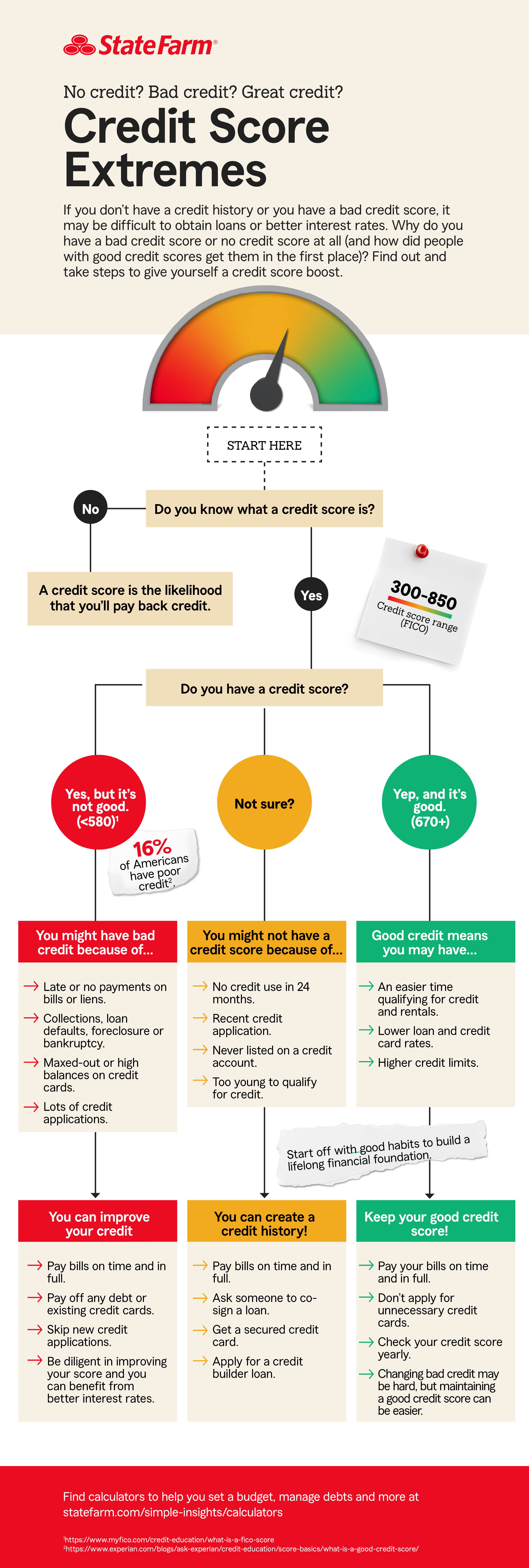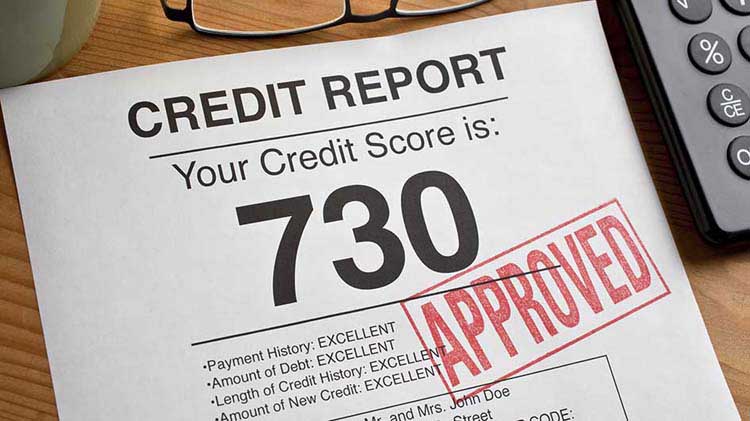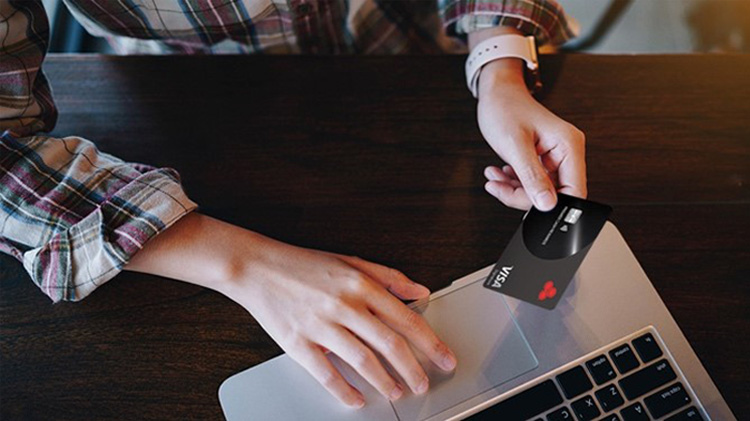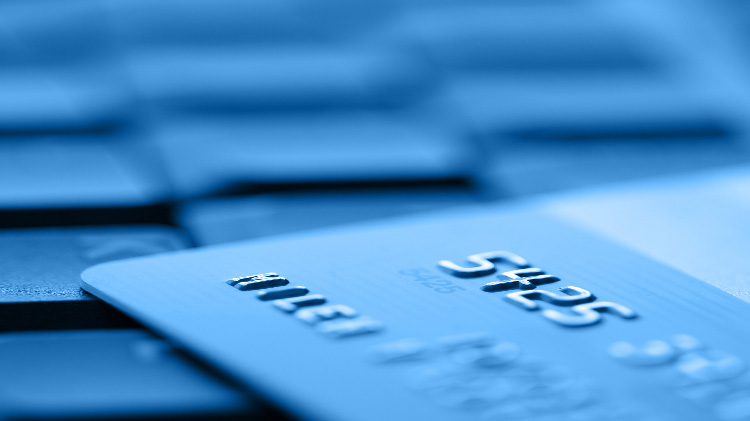How to build credit
Understand how credit works and learn ways to help build and improve your credit score.
Building credit is important because it plays an essential part in any financial strategy. Try to think of your credit score as an indicator of the risk you pose to potential lenders. Whether you want to open a new business or buy a home, your credit score may affect how much you’ll end up paying overall. Fortunately, there are steps you can take to help build and improve your credit score.
Ways to build credit
There are many ways to establish a good credit score. Consider the following:
- Apply for a credit card — having a credit card can be one of the easiest ways to start building your credit score. There are a few options at your disposal: become an authorized user on someone else's card, apply for a secured credit card or open a store card or gas card.
Before we explore credit card options, it's important to note among the other credit score facts and myths we’ve compiled that having more credit cards doesn't necessarily equal a better credit score. While every situation is unique, it's generally better to choose only one or two cards. Opening too many new accounts too quickly can be detrimental to your credit score because the resulting hard inquiries may substantially lower your score.
- Authorized user — to become an authorized account user, you need to be added to someone else’s existing credit card account. Becoming an authorized user allows you to access the account holder’s line of credit which can help you build your score. While this option is convenient, your score is now tied to the account holder’s payment activity. That is to say: their credit mistakes can become yours and vice versa.
- Secured credit card — depending on your situation, a secured credit card may be your best option for a first credit card. Secured credit cards require a deposit in the issuing bank. The credit limit is generally set at the same amount as the deposit. Consider looking for a secured credit card with no application fee, a low annual fee and that reports to all three credit bureaus (Equifax, Experian and TransUnion). You can only establish credit if your secured credit account is reported to the credit bureaus. Only you can determine which card is best for you, so take time while researching to consider the best secured credit card for your needs.
- Credit builder loans — a credit builder loan (CBL) is a personal loan created for the specific purpose of building credit for the borrower and to effectively demonstrate to lenders that the borrower can be relied upon to repay their debts. In a CBL, the borrower makes payments to the lender before receiving the loan money.
You read that right! A CBL begins with the borrower depositing a small amount determined by the loan agreement into a savings account, similar to a secured credit card. From there, the borrower makes payments for the length of the loan agreement. At the end of this period, the lender pays the sum of the savings account back to the borrower. Because the lender reports the borrower’s payments on the CBL to credit bureaus, this provides a history of repayment that allows the borrower to build their credit score.
- Gas or department store cards — while these cards are often easier to qualify for, their impact on your credit score is smaller than secured and unsecured credit cards. Still, they can serve as a credit-building block so long as you regularly pay off the balance on time.
What is credit scoring?
A credit score is a numerical scale that lenders use to determine your creditworthiness. The better the number, the more likely it is that you will get the credit you want at a better interest rate. Lenders generally use the FICO® scoring system, which systematically assigns a three-digit number ranging from 300 to 850 that can indicate the level of future risk based on your credit history. Sometimes creditors refuse to extend credit to someone without a credit score because of the level of risk involved.
What can influence credit scoring?
Some factors that can impact a credit score are listed below.
You may have no credit score if:
- You haven’t used credit in 24 months.
- Your applications are too new.
- You were never listed on a credit account.
- You’re too young to qualify for credit.
Score of 300 to <580 — you might have poor credit because of:
- Late or no payments on bills or liens.
- Collections, loan defaults, foreclosure or bankruptcy.
- Maxed-out or high balances on credit cards.
- Many credit applications.
Score of 670+ — having good credit means:
- You might have an easier time qualifying for credit and rentals.
- You could receive lower loan and credit card rates.
- You may experience higher credit limits.
How to help improve your credit score
- Pay bills on time and in full.
- Pay off any debt or existing credit cards.
- Skip new credit applications.
- Be diligent in improving your score and you can benefit from better interest rates.
Monitor your credit score
In addition to building and improving your credit score, reviewing your credit is a good practice. The good news is that there are free credit monitoring tools to help you do just that. If you’d like a current report on your credit, you can request a free credit report through the website authorized by the Fair Credit Reporting Act.
Review your credit report
A credit report outlines your entire credit history and can be a major determining factor in predicting your future creditworthiness. Credit checks are used by many companies and are used for things including buying a car, obtaining insurance or getting utilities.
When you check your credit report, look closely for:
- Accounts that aren't yours
- Accounts with the wrong account date or credit limit listed
- Names and Social Security numbers that aren't yours
- Addresses where you've never lived
- Negative information — like late payments older than seven years (late payments can only legally stay on your credit report for seven years)
Under the Fair Credit Reporting Act, the three national credit bureaus — Equifax, Experian and TransUnion — along with your creditors, are responsible for correcting errors on your credit report. The Federal Trade Commission (FTC) website has detailed steps for correcting errors, as well as a sample dispute letter.
If you find, for instance, an account that isn’t yours and suspect you're the victim of identity theft, you will likely want to place a fraud alert on your credit report, close the affected accounts and file a police report and a complaint with the FTC.
Use credit wisely
Credit has to be used regularly for creditors to update your credit report with current and accurate information. Once you have a credit card, use it carefully. Your goal isn't to pay interest or charge a significant amount — your credit score isn't based on either. Although you need to make a point to use credit regularly, try to only charge as much as you can pay off. Keep your credit balances low so as not to damage your debt-to-credit ratio. A couple of minor purchases a month and on-time payments will help produce a consistent and positive feed on your new credit report. With this in mind and card in hand, you have the tools you’ll need to start building your credit effectively and responsibly!





